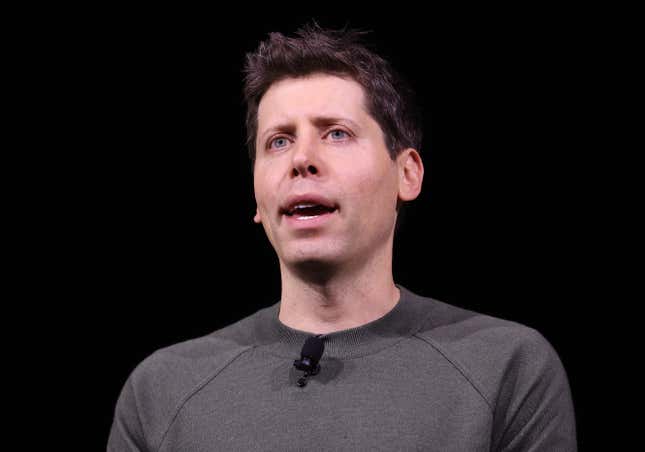
In This Story
OpenAI, the artificial intelligence startup behind popular chatbot ChatGPT, has reportedly launched its latest funding round — and investors could include some of the biggest names in tech.
Chip giant Nvidia NVDA is in talks with OpenAI about potentially contributing $100 million in funding, Bloomberg reported citing people familiar with the matter. Apple AAPL and Microsoft MSFT are also considering providing financing.
This new round of fundraising, led by venture-capital firm Thrive Capital with a $1 billion investment, would value OpenAI at upwards of $100 billion, The Wall Street Journal first reported Wednesday.
Microsoft owns a 49% share of OpenAI’s profits after contributing approximately $13 billion to startup, including $10 billion in backing in January 2023.
Over the past two years, OpenAI has become the most influential generative AI company on the market. ChatGPT hit 100 million weekly users earlier this year, and kicked off the genAI and chatbot boom with the success of its flagship model.
With that growth, OpenAI’s influence — and value — has continued to snowball. A deal allowing employees to sell stakes in the company valued OpenAI at $86 billion late last year, nearly triple what it was earlier in 2023.
Nvidia has been one of the biggest beneficiaries of the AI boom, which brought the Santa Clara, California-based chipmaker’s market capitalization to $3 trillion earlier this year. Nvidia’s powerful chips are critical infrastructure for companies like OpenAI, and are used to train genAI models.
Ultimately, OpenAI is hoping to reach what’s known as artificial general intelligence, or AGI — a futuristic view of machines that can pretty much do anything just as well as humans.
Last month, the company shared a five-level system it developed to track its progress with employees, with a spokesperson reportedly telling Bloomberg it was already at level two, “Reasoners.” That’s where AI that can perform basic problem-solving and is on the level of a human with a doctorate degree but no access to tools.
Critics, including former OpenAI employees, have warned, however, that the company and its ambitions pose “serious risks.” In May, OpenAI disbanded its “Superalignment” team, which was responsible for working on the problem of AI’s existential dangers. The company said the team’s work would be absorbed by other research efforts across OpenAI.




